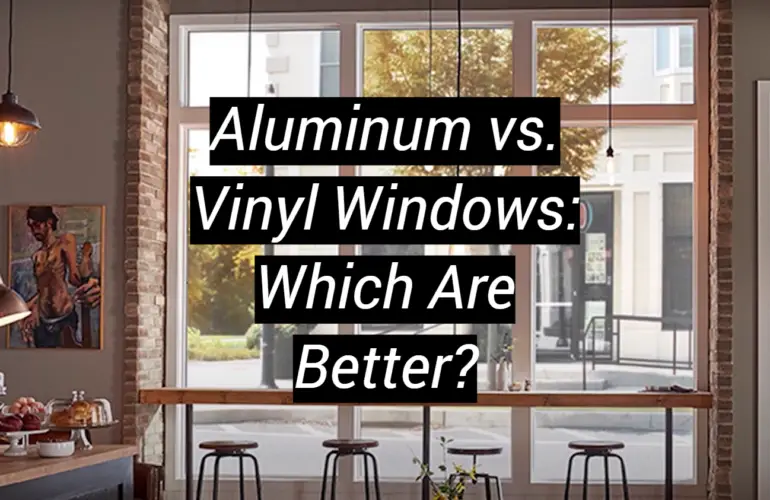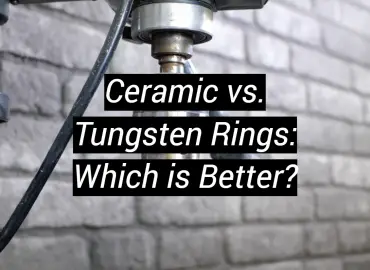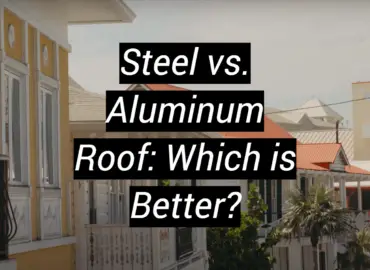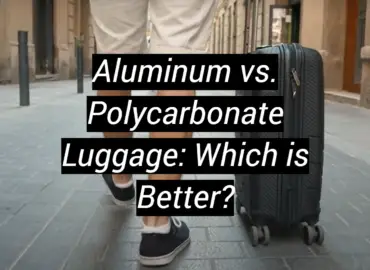With so many different materials used to make windows these days, it can be difficult deciding which one will best suit your needs. Should you go for aluminum or vinyl windows? In this blog post, we will examine the distinctions between aluminum and vinyl windows to assist homeowners in making the best decision. We’ll compare their designs, energy efficiency ratings, price points and more to give you a comprehensive overview of both window types. With this information on hand, making that decision should no longer feel like a daunting task!
What Are Vinyl Windows?
Vinyl windows are a popular choice for homeowners looking to upgrade their existing window system.
They are extremely durable and cost effective, making them an attractive proposition for most homeowners. Vinyl windows also come in a variety of colors and styles, allowing you to customize the look of your home without compromising on performance.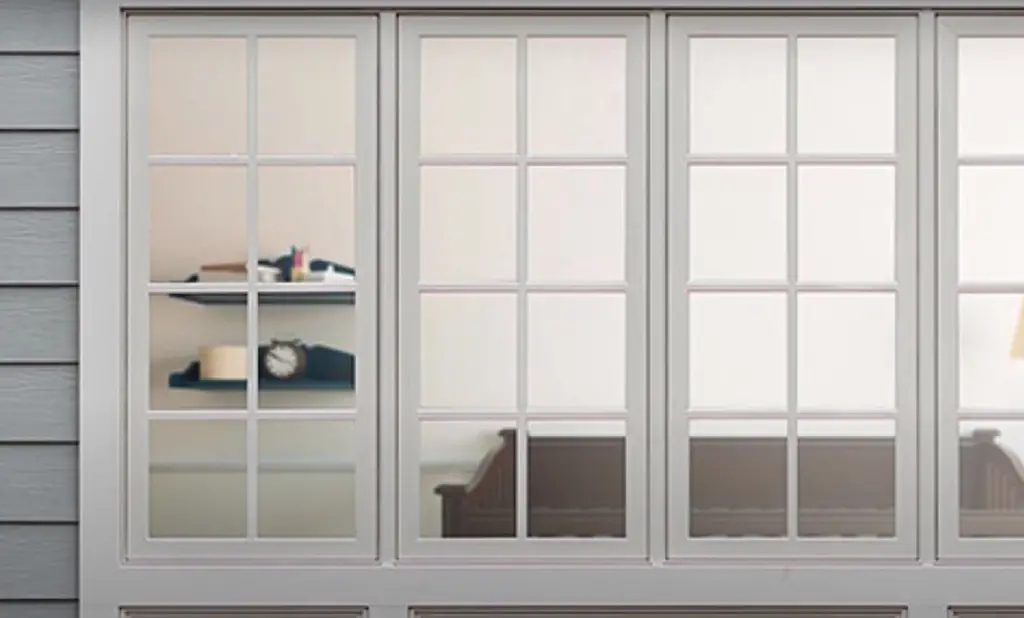
Additionally, vinyl windows require minimal maintenance as they do not need to be stained or painted, unlike traditional wood windows. [1]
What Are Aluminum Windows?
Consider using aluminum windows for your home as they are both efficient and cost-effective. They provide excellent insulation and durability, making them an ideal option for homeowners who want to save money on energy costs. Aluminum frames are made from a lightweight but strong alloy of aluminum and other metals that resist corrosion and rusting, making them a great choice in areas with high humidity or near the ocean. These frames also come in a variety of colors to match any decor scheme.
Vinyl vs. Aluminum Windows
Appearance
Vinyl windows are sleek and smooth, offering a modern look to any space. Aluminum windows, on the other hand, create an industrial or commercial aesthetic with their straight lines and sharp edges.
Durability
When comparing aluminum and vinyl windows, it is crucial to consider their durability as one of the main factors. Aluminum frames are often applauded for their strength and durability – especially in comparison to wood or vinyl frames. Because aluminum is a strong material, it does not deform easily under pressure, making it ideal for windows that need extra support or insulation. Additionally, aluminum frames have great resistance to rot and rust, meaning they can withstand extreme weather conditions without degrading over time. On the other hand, vinyl frames offer excellent protection against cold air infiltration and corrosion-resistant properties. Vinyl window frames are also less susceptible to warping due to temperature changes than aluminum frames.
Ongoing Maintenance
Another important factor to consider when choosing between aluminum and vinyl windows is the amount of ongoing maintenance required. Aluminum frames require regular painting or refinishing in order to maintain their appearance, whereas vinyl frames are usually maintenance free.
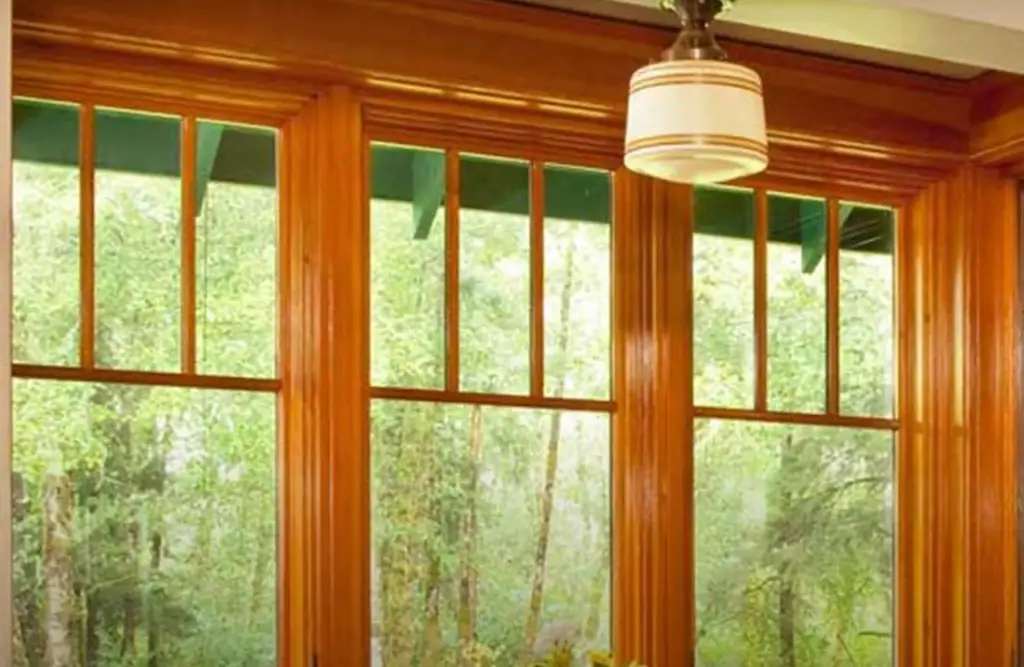
Vinyl window frames also come with a protective UV coating that prevents fading over time, meaning they need very little upkeep compared to their aluminum counterparts. Additionally, because vinyl windows have fewer moving parts than most aluminum frames, there is less possibility of problems occurring due to wear and tear.
Energy-Efficiency
Aluminum windows are not known as a highly energy-efficient material. They do not insulate well, which means that in cold climates, warm air can escape through them and cool air can enter. Vinyl windows, on the other hand, are much better at keeping air from entering or escaping your home.
Additionally, vinyl is recyclable, an important environmental consideration when choosing materials for your windows. In terms of energy efficiency, vinyl wins over aluminum every time. [2]Cost
The cost of aluminum and vinyl windows is roughly the same. The price will depend on factors such as size, style, and the quality of window you choose. However, in terms of bang for your buck, vinyl is a better choice. It requires very little maintenance over its lifetime and can help to reduce energy bills due to its superior insulation properties.
Installation
Installing aluminum windows can often be more labor intensive than vinyl, as the former requires welding and cutting. Vinyl frames come pre-sized and are easy to fit into existing openings without any additional framing needed. All that’s required is to fasten the window frame with screws or nails. This makes installation of vinyl windows much quicker, saving on both time and installation costs.
Environmental considerations
Aluminum is recyclable, so when it comes time to get rid of it, aluminum can be recycled and used in other products. Vinyl windows cannot be recycled and will end up in a landfill once they’ve outlived their usefulness. If environmental impact is an important factor for you, then aluminum is the clear choice.
Popularity
Vinyl windows are more popular these days because they’re cheaper, easier to install, and provide a more energy-efficient seal than aluminum. While aluminum windows have their advantages in terms of strength and durability, most people opt for vinyl window frames when it comes to replacing old windows or installing new ones.
Popular Brands
Popular brands for vinyl windows include Andersen, Pella, and Marvin. Aluminum window frames are often found in low-end models from off-brand companies. When it comes to the best of both worlds, you can’t go wrong with a hybrid model that combines both aluminum and vinyl materials.
Insulation
When comparing the insulation properties of aluminum and vinyl windows, vinyl is the clear winner. Vinyl windows are much more energy efficient than aluminum, providing a better barrier against heat transfer. This can help keep your home warmer in winter and cooler in summer, reducing your heating and cooling bills while improving comfort levels all year round. Aluminum windows offer some insulation value, but not as much as their vinyl counterparts.
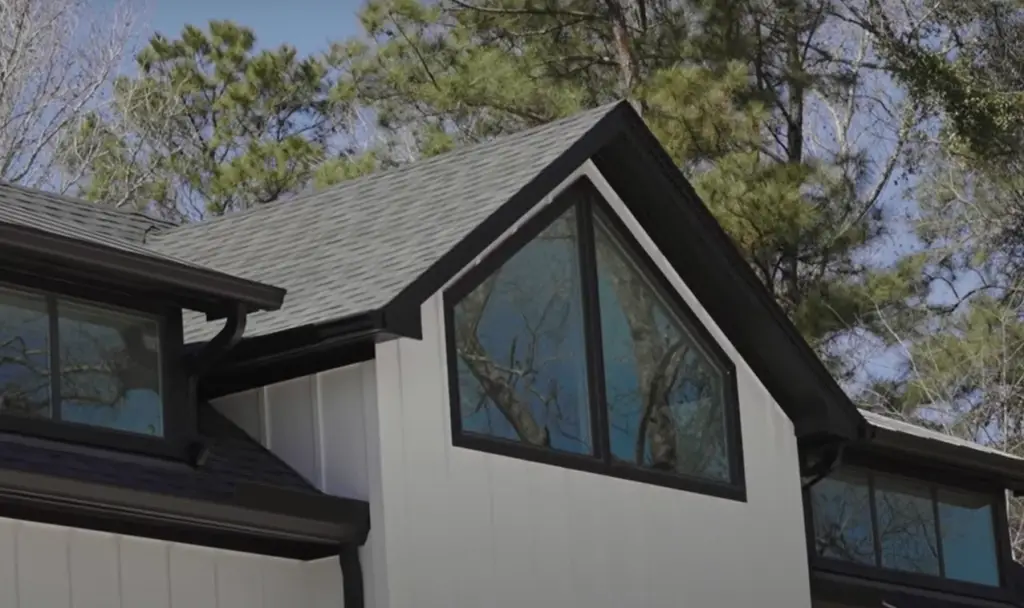
In addition to improved insulation values, vinyl windows also tend to have tighter seals than aluminum frames, resulting in less air leakage around the window perimeter. This means you’ll save even more on energy costs by choosing vinyl over aluminum. Ultimately, if you prioritize insulation when making your window decisions, vinyl is likely the best choice for you. [3]
Are Vinyl or Aluminum Windows Right for My Project?
When it comes to windows, there are a variety of different materials available. Two of the most popular options are vinyl and aluminum. Both can be used for residential and commercial projects, but which is better? To answer this question, you must first consider the pros and cons of each type of window material.
Vinyl windows offer a number of advantages. They’re low-cost, energy-efficient, and require little maintenance. They also don’t corrode or rust like aluminum windows do, meaning their longevity is greater. On the downside, they’re not as strong as aluminum windows and can warp over time due to expansion in hot climates.
Aluminum windows have great strength that makes them ideal for use in areas with strong winds or other harsh weather conditions. They don’t warp and they’re highly durable, making them a great long-term investment. However, aluminum windows are more expensive than vinyl and require more maintenance due to the corrosion of the metal.
The type of window that works best for your project depends on several factors, including budget, climate, and design needs. If you need a low-cost solution that requires little maintenance, vinyl could be a good option. For projects located in climates with extreme temperatures or where strength is important, aluminum might be the better choice.
Ultimately, there is no one-size-fits-all answer when it comes to choosing between vinyl and aluminum windows. The best option for your project depends on many factors, but both materials offer advantages and disadvantages that should be considered before making a decision. Talk to a window professional to get the right advice for your specific needs.
Pros and Cons of Vinyl Windows
Vinyl windows offer many advantages over aluminum windows, including greater energy efficiency. They are also more affordable and easier to install. Vinyl frames are not prone to rust or corrosion, making them a great choice for humid areas. They can be made in any color and come with various features such as double-paned glass, UV protection, low-E coatings and thermal breaks.
The downside is that vinyl windows may require occasional cleaning because they may become discolored over time due to dirt or pollutants in the air. Additionally, vinyl is not as strong or durable as aluminum so it may dent more easily under impact or high wind speeds. Vinyl windows also lose their shape and rigidity at colder temperatures which could affect insulation performance.
Overall, vinyl windows are a good choice for those looking for an affordable and energy-efficient window solution that is easy to install and maintain. They may not be as aesthetically pleasing or durable as aluminum windows, but in many cases they offer the best overall value when you consider their features, cost and ease of installation. [4]
Pros and Cons of Aluminum Windows
Aluminum windows are a popular and affordable choice for many homeowners. They offer numerous advantages such as durability, low-maintenance, energy efficiency, and affordability. However, they also have some drawbacks that must be considered before making a purchase.
Pros:
- Durability: Aluminum windows are highly durable due to their non-corrosive nature and strength. They can withstand extreme weather conditions without the need for frequent maintenance or replacement.
- Low Maintenance: As aluminum is not prone to rotting or warping like other materials, it requires very little upkeep which makes them an ideal choice for busy households. Additionally, these windows can easily be wiped down with soap and water on a weekly basis to keep them looking clean and new.
- Energy Efficiency: Aluminum is a great material for windows because it is an effective conductor of heat, which helps keep the interior temperature of your home consistent throughout the year. This reduces energy costs and keeps the environment cleaner.

Cons:
- Limited Design Options: While aluminum frames are available in various colors, they do not offer much flexibility when it comes to design options. As a result, many homeowners find themselves limited to basic window styles that may not suit their tastes or needs.
- Increased Condensation: Due to their high conductivity, aluminum windows can become very cold during winter months and cause condensation on the inside of the frame. This can lead to mold growth if not cleaned regularly. Additionally, because aluminum is a soft metal, it can easily be dented or scratched.
Ultimately, the decision between aluminum and vinyl windows comes down to personal preference and budget. Aluminum frames are an economical option that offer long-term durability and energy efficiency while also being relatively low-maintenance. However, if you’re looking for more design flexibility and fewer condensation issues, vinyl may be the better choice. Carefully consider your needs before making a purchase so you can select the best window for your home. [5]
Maintenance Tips for Vinyl Windows
Vinyl windows are becoming increasingly popular due to their low maintenance needs. However, even though vinyl is highly durable and resists fading, cracking and warping, like any window material it still requires some regular maintenance to keep it in tip-top shape. Here are some tips for maintaining your vinyl windows:
- Clean the Vinyl Frames Regularly – Dirt and debris can gather on the frames of your vinyl windows over time which can lead to them looking dull or discolored. To clean the frames, use a mild soap solution with a soft cloth or sponge—never use abrasive cleaners as they can damage the finish of the vinyl frame.
- Check the Weather Stripping – The weather stripping around your windows is an important feature that helps keep air and moisture from entering your home. Inspect the weather stripping regularly to ensure it’s in good condition and replace it if needed.
- Replace Worn or Damaged Parts – If you notice any broken parts on your vinyl windows, contact a professional installer to have them replaced as soon as possible. You don’t want to risk letting air or water seep into your home.
- Apply Lubricant When Necessary – If you hear squeaks when opening or closing your vinyl windows, apply a small amount of lubricant such as WD-40 to the hinges or sliding tracks. This will help keep all parts working properly and prevent further damage over time.
By following these simple maintenance steps, you can ensure your vinyl windows remain looking good and functioning properly for years to come. With proper care, they should be able to last just as long or even longer than aluminum windows.
Maintenance Tips for Aluminum Windows
Aluminum windows are known for their strength and durability, but they still require regular maintenance to keep them looking good and performing well. Here are some tips to help you maintain your aluminum windows:
- Clean the frames regularly with mild soap and water. Avoid using abrasive cleaners as this can cause damage to the surface of the aluminum frames.
- Inspect all seals on a regular basis to ensure that no air is leaking through any gaps or cracks in the window frame. If you find any leaks, seal them up right away with caulk or weather stripping.
- Check for corrosion or oxidation of the aluminum frame periodically, especially if it’s exposed to harsh elements like saltwater or strong sunlight. If corrosion is found, make sure to sand down the area and repaint it with a protective coating.
- Regularly lubricate all moving parts on aluminum windows with silicone-based lubricant oil to ensure that they move smoothly and without any friction.
- Make sure to open and close your aluminum windows regularly so that the hinges don’t become stiff over time due to lack of use.
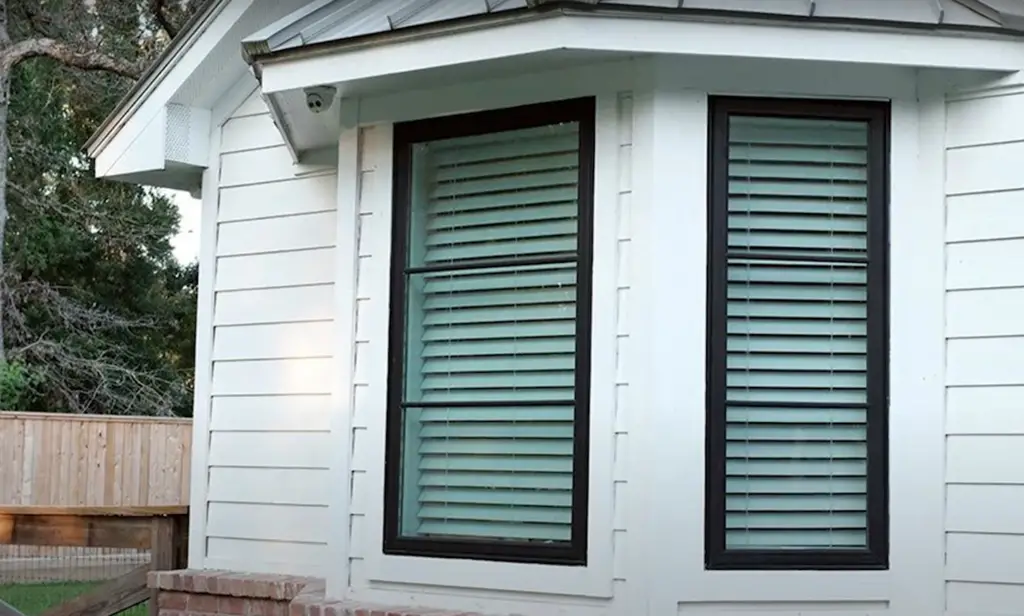
By following these tips, you can ensure that your aluminum windows will continue to look great and perform well for years to come! [6]
How Many Years Does Aluminum Last?
Aluminum windows are known for their durability and longevity. In most cases, aluminum windows can last up to 20 years with proper installation and maintenance. When compared to vinyl windows, which usually only last 8-12 years, it’s easy to see why many homeowners prefer aluminum. Plus, the metallic frame of an aluminum window provides greater resistance against corrosion and other damage caused by extreme weather conditions.
One major downside of aluminum windows is that they are more prone to condensation buildup due to their poor insulation capabilities. This means that you may have to take extra steps like installing insulated glass panels in order to reduce heat transfer or using a dehumidifier in humid climates. Despite this drawback, the strength and longevity offered by aluminum frames make them a great option for homeowners who want reliable windows that can stand up to the elements.
Will Aluminum Ever Rust?
Aluminum has long been praised for its strength and low maintenance requirements. Unlike many other metals, aluminum does not naturally rust. The oxide that forms on the surface of aluminum acts as a barrier to protect the metal from further corrosion or oxidation. However, if exposed to harsh elements like saltwater or certain acids, aluminum can corrode. Additionally, because it is a softer metal than steel or iron, scratches and dents may occur more often with aluminum frames than with vinyl frames. With proper care and maintenance, however, these issues can be minimized or avoided altogether.
When comparing aluminum versus vinyl windows in terms of resistance to rusting and corrosion, both materials have pros and cons. On one hand, vinyl windows are not prone to rusting or corrosion and require very little maintenance.
Ultimately, it is up to each homeowner to decide which material best meets their needs and preferences.Alternatives to Vinyl and Aluminum Windows
If neither aluminum or vinyl windows suit your needs, there are other material options available. Wood is a popular choice due to its natural beauty and insulation properties – plus it’s even more durable than vinyl or aluminum. Metal clad wood windows provide the best of both worlds; they offer the strength and durability of metal on the outside combined with an interior wooden frame for insulation. Fiberglass frames are also becoming increasingly popular choices as they have excellent insulating properties along with low maintenance requirements. Finally, composite materials like fibrex are another option that combine the best features of both wood and vinyl frames into one window system.
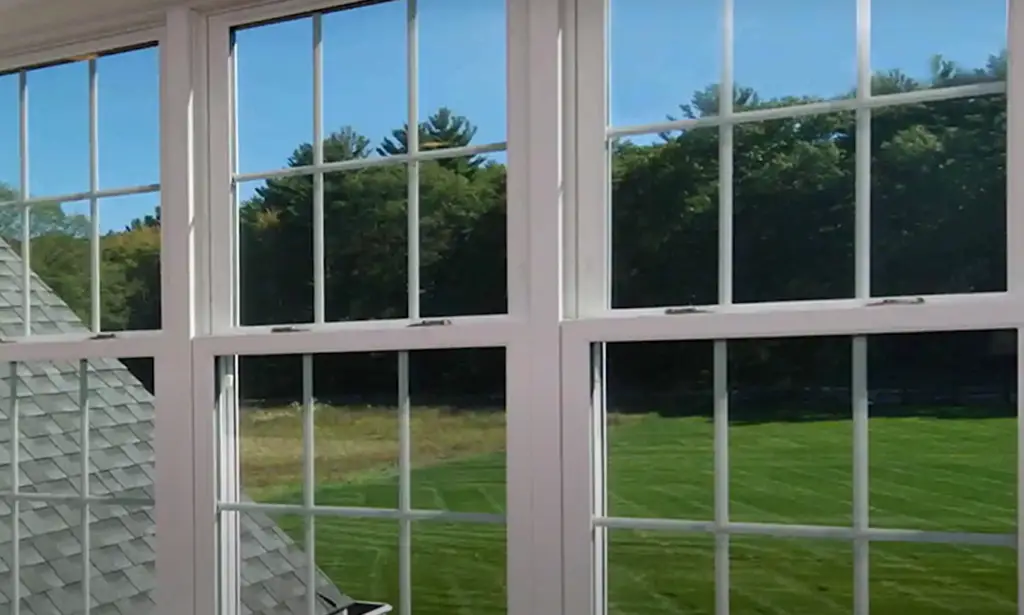
No matter which type of window you choose, it’s important to understand all of your options before making a decision. Consider the climate you live in, your budget and the appearance of each window type before selecting one for your home. Doing so will ensure that you get the best windows for your needs and preferences.
Ultimately, both vinyl and aluminum windows have their own advantages and drawbacks – it’s up to the homeowner to decide which is best suited for their particular situation. As always, take into account all factors including cost, aesthetics, location and maintenance requirements when making this important choice. With a bit of research, you can be sure to make an informed decision on choosing the right windows for your home. [7]
FAQ
What lasts longer vinyl or aluminum windows?
In terms of raw longevity, aluminum windows typically last longer than vinyl windows. Properly cared for aluminum can last twenty to forty years before needing replacement. Vinyl, on the other hand, has a maximum lifespan of about fifteen to thirty years depending on environmental conditions and how well it is maintained.
What kind of insulation do aluminum or vinyl windows offer?
Aluminum frames lack thermal insulation compared to vinyl frames, which are much better at holding in heat or cold air in extreme temperatures. Aluminum frames also conduct temperature more easily than vinyl so they can be susceptible to drafts and leaks if not properly installed.
Which type of window requires less maintenance?
Vinyl windows require less maintenance than their aluminum counterparts because they don’t need to be painted or sealed every few years. With minimal maintenance, vinyl windows can last for many years without needing to be replaced.
Which type of window is more energy efficient?
Both aluminum and vinyl windows can help improve energy efficiency in a home. The key to getting the most out of your windows is making sure they have been properly installed with adequate insulation, like foam-filled frames and Low-E glass coatings.
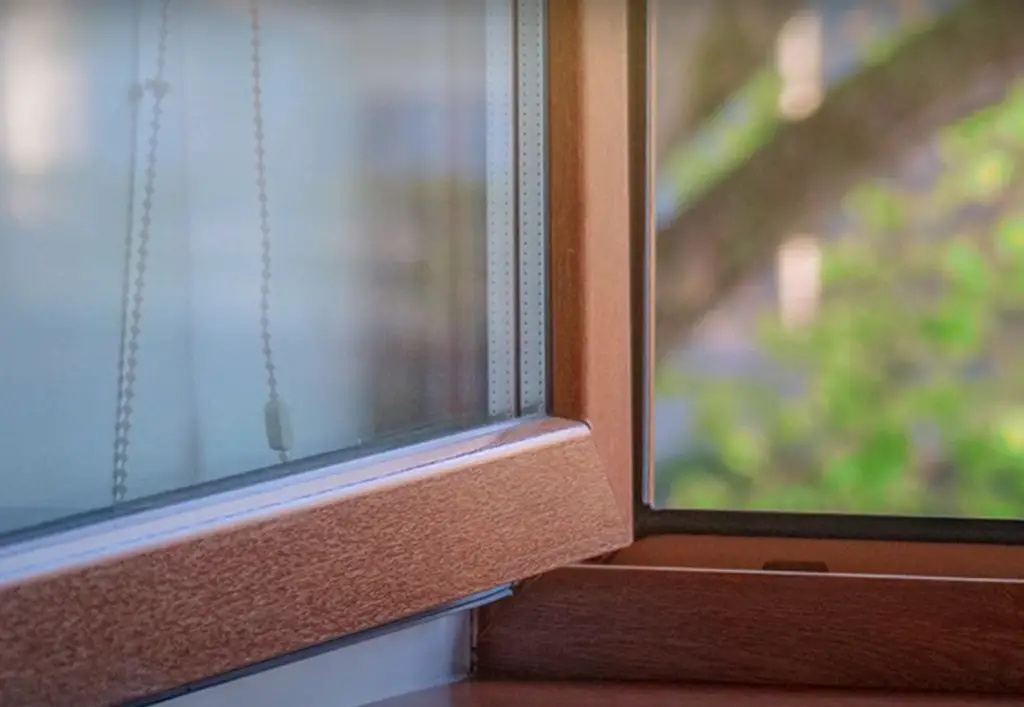
Aluminum windows are generally considered more energy efficient than vinyl due to their superior thermal performance. This means that less heat is lost through the frame in colder climates, thus cutting down on heating costs during winter months. Additionally, aluminum frames are less prone to condensation buildup when compared to their vinyl counterparts, which can help reduce the risk of mold and mildew growth from trapped moisture.
What is the cost difference between aluminum and vinyl windows?
The cost of aluminum windows tends to be slightly higher than that of vinyl windows due to their superior energy efficiency and durability. The exact cost difference depends on the specific materials used, as well as the size and type of window you are looking to install. Generally speaking, a higher quality aluminum frame may cost 20-40 percent more than a comparable vinyl one. However, the savings in energy costs over time can help make up for this initial price difference. Additionally, aluminum frames tend to last much longer than their vinyl counterparts, meaning that they will not need to be replaced as often— resulting in even greater long-term savings.
What is the disadvantage of aluminum windows?
Aluminum windows have a few key disadvantages that may make them less desirable than vinyl windows. First, aluminum is a much better conductor of heat than vinyl, meaning that in warm climates it could end up increasing energy costs to cool the home. Additionally, aluminum frames are not as strong as vinyl frames and may require additional structural support. Finally, metal frames can be noisy during rain storms and can require more maintenance over time due to their susceptibility to corrosion. This means greater expense for painting and repairs than with vinyl windows. Depending on climate and other factors such as soundproofing needs or desired maintenance level, homeowners must decide whether the advantages of aluminum outweigh its drawbacks.
Why are aluminum windows better?
Aluminum windows have some distinct advantages when compared to vinyl components. While aluminum is more expensive to purchase, the material has a higher strength-to-weight ratio than vinyl and may be better suited for high wind areas or other extreme weather conditions. In addition, aluminum frames are extremely durable and require little maintenance over their lifespan. Finally, aluminum windows come in a variety of colors and finishes that can be customized to a homeowner’s preference. Homeowners who opt for aluminum frames should consider these advantages to determine if they outweigh any drawbacks.
Can vinyl windows last 50 years?
When it comes to longevity, aluminum windows have a slight edge over vinyl windows. Although some vinyl windows can last for up to 50 years with proper care and maintenance, many manufacturers limit their warranty periods due to the potential for UV damage and other environmental factors to degrade the material over time. On the other hand, aluminum frames are much more durable and resistant to weathering, making them able to last decades without needing significant attention. They also tend to be better at insulating against extreme temperatures than vinyl windows — another factor that adds to their longevity. Ultimately, if you’re looking for a window frame material that will stand the test of time, aluminum may be your best bet.
Are aluminum windows better than uPVC?
It depends on your needs. Aluminum windows are typically more expensive than uPVC (unplasticized polyvinyl chloride) but offer greater durability and strength over time. They also tend to offer better insulation against extreme temperatures, which can save you money in the long run.
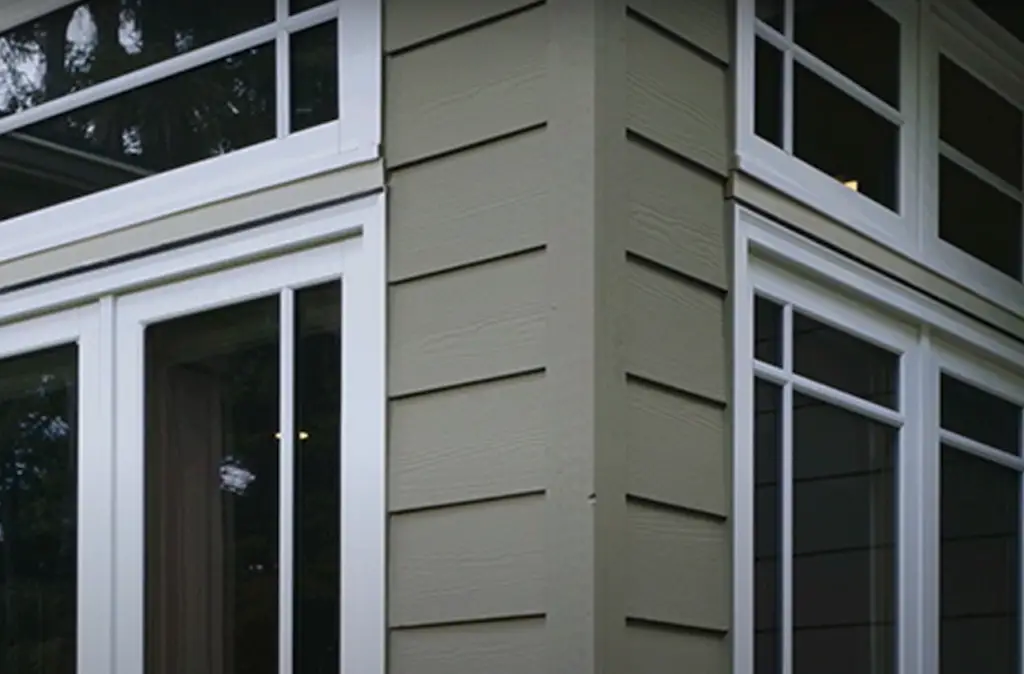
However, if cost is a major factor, then uPVC may be the better choice — it’s generally cheaper than aluminum and still relatively durable with proper care and maintenance. Ultimately, it comes down to finding a balance between budget and performance that fits your home’s needs.
Are aluminum windows energy efficient?
Yes! Aluminum is an excellent material for insulating against temperature changes and offers superior thermal resistance compared to materials like vinyl or wood. This means that aluminum windows can help keep your home warmer in the winter and cooler in the summer, thereby reducing your energy bills. Additionally, they often come with double or triple-paned glazing to further improve their efficiency — an important feature if you’re looking for ways to save money on heating and cooling costs. Ultimately, choosing aluminum windows is a great way to make your home more energy-efficient while also boosting its overall value.
Are aluminum frames environmentally friendly?
Yes! Aluminum is one of the most recycled materials on Earth, making it a great choice for those who care about reducing their environmental impact. Not only does recycling aluminum reduce waste, but it also saves energy compared to producing new metal from ore deposits — meaning that making products with recycled aluminum has a much lower carbon footprint. Additionally, aluminum frames last longer than other materials, reducing the need to constantly replace them and thus contributing even further to sustainability initiatives. Ultimately, when it comes to preserving our environment, aluminum is a great choice for windows!
Useful Video: Aluminum vs Vinyl Home Windows | Which Is Better?
Conclusion
Both aluminum and vinyl windows have their advantages and disadvantages. Aluminum is strong, durable, and requires little maintenance. However, it has poor energy efficiency compared to vinyl. Vinyl is less expensive than aluminum, offers good insulation properties, and doesn’t require much maintenance either.
Ultimately, the decision of which window to install comes down to personal preference as well as budget. Any quality product will last for many years if installed correctly in the right environment. Consider your needs carefully before making a choice between aluminum or vinyl windows so that you can make an informed decision that best suits your home’s needs.
References:
- https://paradigmwindows.com/vinyl-vs-aluminum-windows/
- https://www.clerawindows.com/blog/windows/vinyl-vs-aluminium-windows/
- https://www.metalswarehouse.co.uk/lifespan-recyclability-aluminium-steel/
- https://www.bobvila.com/articles/vinyl-vs-aluminum-windows/
- https://www.vetrinawindows.com/articles/which-is-better-aluminum-windows-or-vinyl-windows-home
- https://advancedwindowsusa.com/vinyl-or-aluminum-windows-which-is-better
- https://www.homeadvisor.com/r/vinyl-vs-aluminum-windows/

